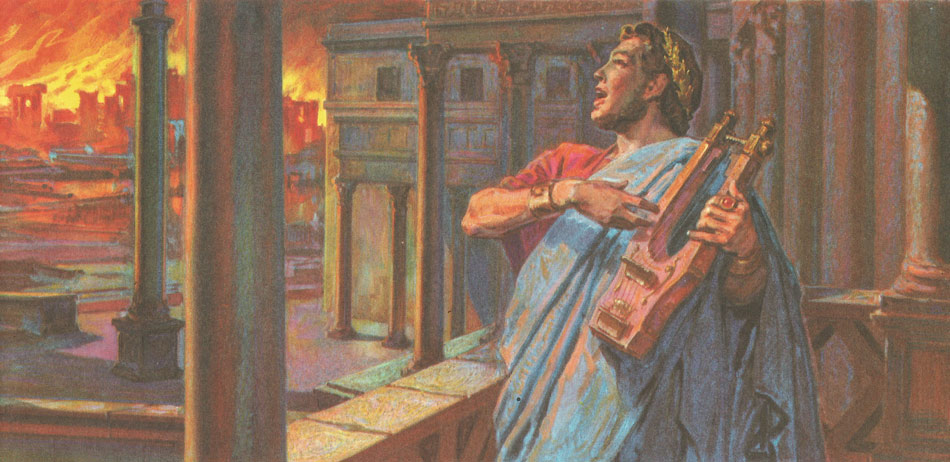
Nero Claudius Caesar Augustus Germanicus, commonly known as Nero, was a Roman emperor who ruled from AD 54 to 68. He is infamous for his cruel and tyrannical reign, which was marked by corruption, extravagance, and violence. One of the most notorious incidents of his reign was the burning of Rome, which occurred in July of AD 64. This event has been shrouded in mystery and controversy ever since, with many theories and legends surrounding it.
The Fire Of Rome

The fire of Rome is said to have started on the night of July 18 or 19, AD 64, and burned for six days and seven nights. It destroyed much of the city, including many of its most famous buildings and landmarks, such as the Circus Maximus, the Temple of Jupiter, and the Aventine and Palatine hills. The exact cause of the fire is unknown, but there are many theories, ranging from accidental causes such as a lightning strike or a kitchen fire to deliberate acts of arson.
Nero's Role In The Fire

One of the most enduring theories about the fire of Rome is that Nero himself was responsible for it. According to this theory, Nero wanted to rebuild Rome in a more grandiose and magnificent style, but was unable to do so because of the city's narrow streets and cramped buildings. He therefore ordered the fire to be started, hoping that it would clear out the old city and allow him to build a new one. This theory is supported by the fact that Nero was reportedly seen watching the fire from a tower while playing his lyre and singing a song about the fall of Troy.
The Blame Game
/GettyImages-961329498-5c4e4102c9e77c00014afb37.jpg)
Regardless of whether or not Nero was responsible for the fire, he certainly took advantage of the situation to further his own agenda. He blamed the fire on the Christians, who were already a persecuted minority in Rome, and used the incident as an excuse to launch a brutal crackdown on them. Many Christians were arrested, tortured, and executed in the aftermath of the fire, and their religion was officially outlawed.
The Legacy Of Nero

Nero's reign was marked by corruption, extravagance, and violence, and his legacy is one of infamy and notoriety. He is often portrayed as a cruel and tyrannical ruler, who was more interested in his own pleasure than the welfare of his people. His role in the burning of Rome, whether real or imagined, has cemented his place in history as one of the most reviled figures of the ancient world.
Conclusion
The burning of Rome remains one of the most enduring mysteries of ancient history, and the role of Nero in that event continues to be debated to this day. Whether he was truly responsible for the fire or simply took advantage of the situation to further his own agenda, the legacy of Nero remains one of infamy and notoriety. His reign serves as a cautionary tale about the dangers of unchecked power and the corrupting influence of absolute authority.